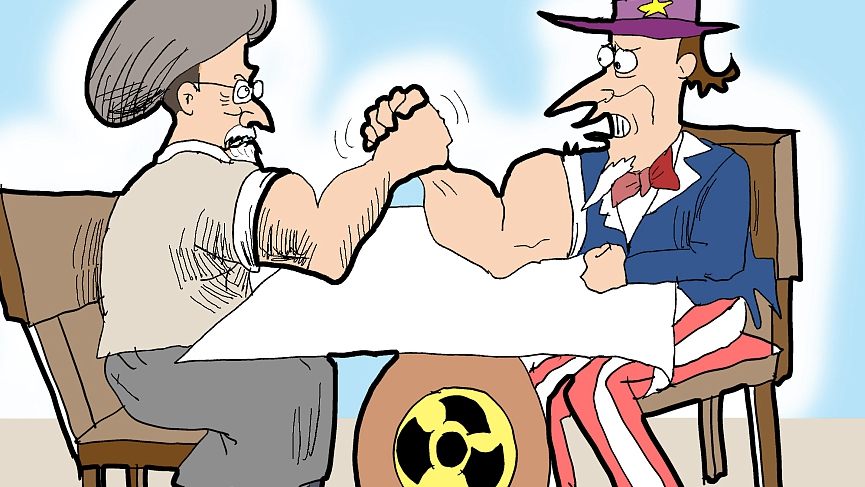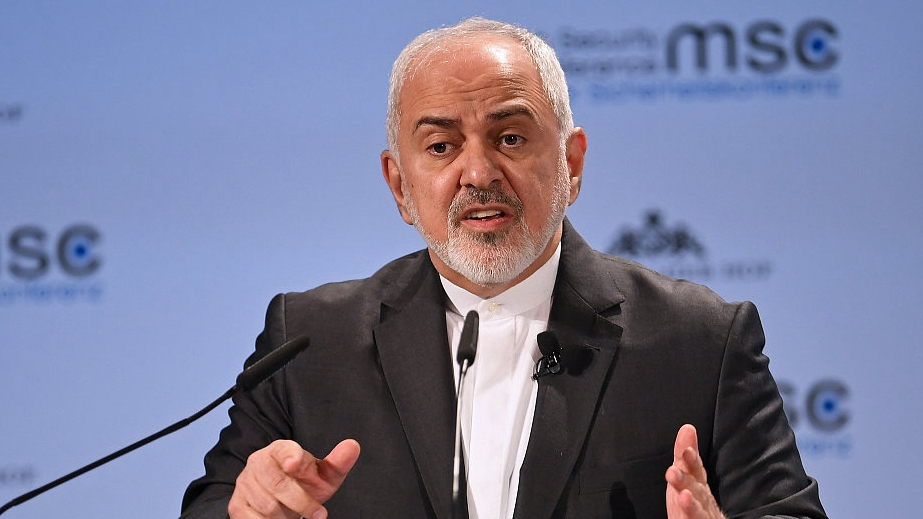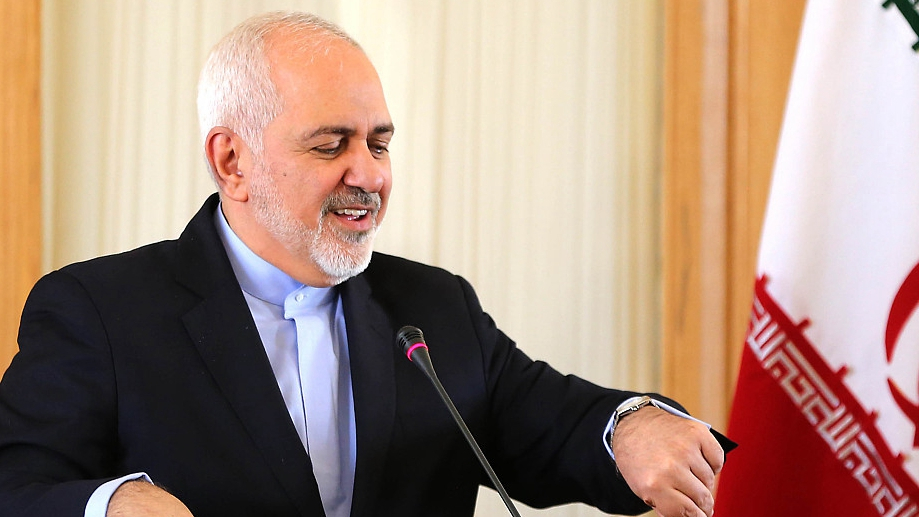
Opinion
21:10, 28-Feb-2019
Why Iran won't lose its smooth diplomat
Updated
22:45, 28-Feb-2019
Ghanbar Naderi

Editor's note: Ghanbar Naderi is an Iranian journalist, a current affairs commentator, a documentary filmmaker, and a member of the Writers Guild of Great Britain. The article reflects the author's opinions, and not necessarily the views of CGTN.
Iran's Foreign Minister Mohammad Javad Zarif, who helped strike the landmark 2015 nuclear deal with world powers, announced his resignation unexpectedly on Instagram Monday.
The abrupt decision by the bespectacled diplomat took many by surprise, particularly signatories of the deal China, Russia, and the European Union (EU).
They want to substitute President Donald Trump's grand strategy of unilateralism with shared peace and multilateralism, and help Iran see the economic benefits of the nuclear deal, called the Joint Comprehensive Plan of Action (JCPoA).
Regrettably, the same cannot be said in Iran, where the masterful diplomat with a long record of handling Tehran's American foes is under immense pressure from hardliners. So when he announced his resignation, many hardliners rejoiced.
Zarif did not give a reason for his decision. But these could be the reasons behind his resignation:

Iran's Foreign Minister Mohammad Javad Zarif speaks during the annual Munich Security Conference in Munich, Germany February 17, 2019. /VCG Photo
Iran's Foreign Minister Mohammad Javad Zarif speaks during the annual Munich Security Conference in Munich, Germany February 17, 2019. /VCG Photo
U.S. sanctions
Hardliners accuse the masterful diplomat of selling out his country for signing the nuclear agreement with lots of smoke and mirrors and very little action.
Their criticism got worse when President Donald Trump entered the White House.
When he withdrew the United States from the pact in 2018 and reimposed unilateral sanctions to cripple Iran's oil industry, the masterful diplomat faced a perfect storm.
In the hope to save the agreement and bypass sanctions, the European Union signatories to the deal - Britain, France, and Germany - introduced the Special Purpose Vehicle (SPV) and the INSTEX, or the Instrument in Support of Trade Exchanges. They then asked Iran to sign the Financial Action Task Force (FATF). China and Russia, as well, backed the move.

Iran's Foreign Minister Mohammad Javad Zarif checks his watch during a press conference in Tehran. /VCG Photo
Iran's Foreign Minister Mohammad Javad Zarif checks his watch during a press conference in Tehran. /VCG Photo
The problem is a prolonged procedure in Iran's Expediency Council to pass bills to reform the country's anti-terrorism financing and anti-money laundering laws.
Zarif insists that passing of the bills is crucial for the establishment of international banking ties, notably with Europe. The financial entity to facilitate trade with Iran also hinges on FATF legislations.
Two remaining FATF bills have stalled due to a seemingly unending debate and rivalry between moderates and hardliners both in parliament and the Expediency Council.
Consider, too, that the Paris-based international watchdog has extended Tehran's deadline until June to implement these legislative changes; if it fails to, it would be put back on its blacklist of risky countries for business and trade, and lose the chance to establish important new financial channels to Europe.
This has frustrated Zarif and put him at odds with the conservative camp, which doesn't trust the EU and is suspicious of its intentions.
Parallel structures
Relying entirely on internal Iranian dynamics, Zarif's resignation could be a tactic, tied to his exclusion from a surprise meeting in Tehran on Monday, February 25, between Iran's Leader Ayatollah Seyyed Ali Khamenei and Syrian President Bashar al-Assad.
After his resignation, Zarif told the media that he hoped his resignation "would spark the return of the ministry of foreign affairs to its constitutional place in Iran's international relations."
Apparently, Zarif believes these internal disagreements over Iran's international policies, plus deep fractures and fierce political rivalry in the corridors of power have given rise to parallel structures, undermining his foreign policy efforts.
Still, the point remains. Tehran needs the smiling diplomat to contain the fallout of the nuclear deal and build confidence among the remaining signatories - China, Russia, and the EU - to help bypass Washington's unilateral sanctions and strengthen economic ties that could ease the pressure on the Iranian economy. Zarif is an architect and defender of the deal, and his departure would be a serious blow to the ongoing international efforts.
Seeing the future and reading the leaves, his weakening and departure will surely clear the way for hardliners and wide-eyed conspiracy theorists to stir the country away from further diplomatic engagement with the remaining signatories. It will likely make the present danger even greater, and diminish their ability to resist the Trump administration's "maximum pressure" policy against Tehran.
As any intelligence analyst worth his or her salt has pointed out in recent months, the Trump White House officials have never made a secret of their burning desire to seize on any incident or fabricated threat to stoke a war between the U.S. and Iran.
Luckily, with a track record like this, the threat inflators failed to get their chance with this particular incidence: President Hassan Rouhani and Ayatollah Khamenei didn't accept the smooth diplomat's resignation. This epoch deserves memorializing.
(If you want to contribute and have specific expertise, please contact us at opinions@cgtn.com.)

SITEMAP
Copyright © 2018 CGTN. Beijing ICP prepared NO.16065310-3
Copyright © 2018 CGTN. Beijing ICP prepared NO.16065310-3